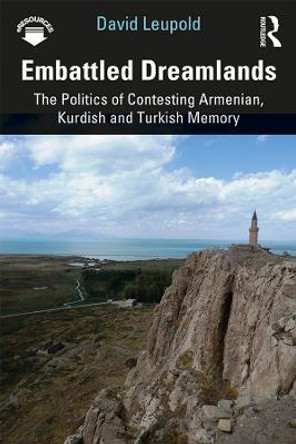Description
The Kurdish Movement in Turkey's growing alliance with Islam
One of the fault lines of Turkish politics traditionally has been the divide between religious and secular movements. However, as Zeki Sarigil argues, the secular Kurdish movement in Turkey has increasingly become aligned with Islam. As a result, Islam has become part of the movement's political discourse, strategies and actions.
Ethnic Boundaries in Turkish Politics traces the evolving relations between the leftist, secular Kurdish movement and Islam, from an apathetic and/or antagonistic attitude in the 1970s and 1980s to an increasingly Islam-friendly approach in the 1990s to an attitude of accommodation and the rise of Kurdish-Islamic synthesis in the early 2000s. Based on 104 interviews in several provinces in Turkey (primarily Ankara, Diyarbakir, Istanbul, and Tunceli) between 2011 and 2015 as well as ethnographic data, public opinion surveys and statements from the Kurdistan Workers' Party (PKK) and Kurdish leaders, Sarigil shows how the secular Kurdish movement increasingly has been endorsing Islam and Islamic actors. The reasons for this Islamic opening are global, national, and local; Sarigil demonstrates that a group of strategic and ideological factors have encouraged and/or forced Kurdish leaders to redraw symbolic and social boundaries of the movement. Namely, with the end of the Cold War support for Marxist ideas collapsed, creating increasingly more favorable responses towards religion. In addition, the movement's need to expand its social basis and popularity; electoral politics; and legitimacy struggles against rival political actors were other major factors, which triggered the Kurdish movement's boundary expansion (i.e. its Islamic opening). The study also shows that the Kurdish boundary making was not without any tension or contestation. The boundary expansion by Kurdish ethnopolitical elites triggered both internal and external boundary contestations.
The movement's embrace of Islam on a more widespread level has major ramifications for politics in Turkey and in the region. Ethnic Boundaries in Turkish Politics has important insight into the PKK, modern Turkish and Islamic societies and highlights the increasing role of Islam in global politics.
About the Author
Zeki Sarigil is Associate Professor of Political Science at Bilkent University in Ankara, Turkey.
Reviews
"The Kurdish armed insurgency in Turkey is one of the longest and most complicated conflicts in the post-World War II era. The PKK-led insurgency, which was initiated by a small group of college students in the 1970s, has not only survived the harsh conditions of the Middle East but also thrived in the past 40 years, becoming a key non-state actor in the region. This book is about this strong secular insurgency and the groups it has inspired, addressing the question of religion. Zeki Sarigil very effectively frames the Kurdish ethno-nationalist movement in Turkey into the wider context of ethnic armed conflict, nationalism, and religion. It stands out from most of the existing studies that primarily utilize a historical approach to the Kurdish conflict by its multi-method approach to examine an important aspect of the Kurdish movement that has not yet been systematically studied." -- Mehmet Gurses,Associate Professor of Political Science, Florida Atlantic University
"This ambitious book poses a set of original and essential questions for students of Kurdish politics: Why, how, and with what consequences has the secularist Kurdish movement given up its anti-religious stance and policies? How has religion, once considered reactionary by the Turkish state and the Kurdish movement, become a boundary contested area for these two actors? How have the elite members of these groups utilized Islamic teachings to capture the support of ordinary Kurds? Sarigil deftly crafts an indispensable ethnic boundary-making analysis with extensive fieldwork and interviews conducted over five years . . . definitely a must-read for followers of Kurdish politics." -- Ekrem Karakoc,Associate Professor of Political Science, Binghamton University
Book Information
ISBN 9781479882168
Author Zeki Sarigil
Format Hardback
Page Count 208
Imprint New York University Press
Publisher New York University Press
Weight(grams) 472g




